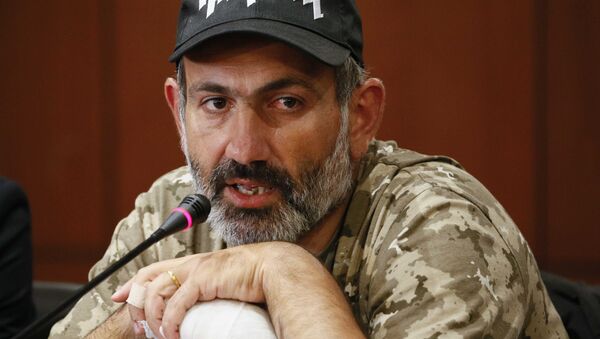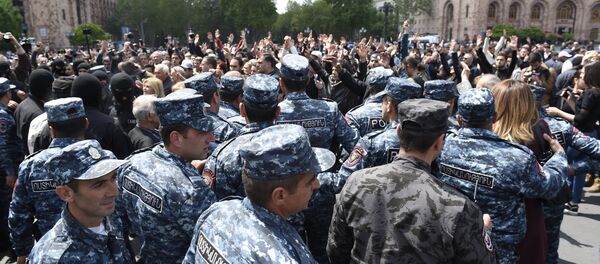On Monday, Armenian Prime Minister Serzh Sargsyan resigned amid the large-scale anti-government protests against his appointment. Following Sargsyan's resignation, Armenian First Deputy Prime Minister Karen Karapetyan became acting prime minister.
"We insist that the acting prime minister, the speaker of the parliament and the head of the parliamentary majority participate in the negotiations," Pashinyan at a briefing in Yerevan.
According to Pashinyan, "the era of the Republican Party is over, they should not cling to power."
"If the people put this responsibility on me, I'm ready to become a prime minister. There is a great chance that this will happen," he added.
Speaking on the relations with Armenia's major neighbor, Russia, Pashinyan said that Yerevan is poised to settle the differences with Moscow.
"Relations with Russia are very important, these are friendly, fraternal countries. But this does not mean that there are no problems in these relations," Pashinyan said, adding that Armenia's ties with Russia should be built on the basis of "the interests of the Armenian people.
"The fact is that Armenia does not have a big enough army to protect all its borders. It is a political reality that any Armenian government should take into account," he stressed.
Since April 13, Yerevan has been hit by a series of protests against Sargsyan's candidacy for the premiership. On Tuesday, the parliament elected Sargsyan as prime minister, while the protesters announced the beginning of a "velvet revolution" in the country.
READ MORE: Opposition Protests in Armenia Expand Despite Authorities' Call for Dialogue
Before the appointment, Sargsyan served two five-year consecutive terms as president until April 9. His election as prime minister had been largely regarded as an attempt to get around presidential term limits since the 2015 constitutional amendments transferred governing powers from the president to the prime minister.



